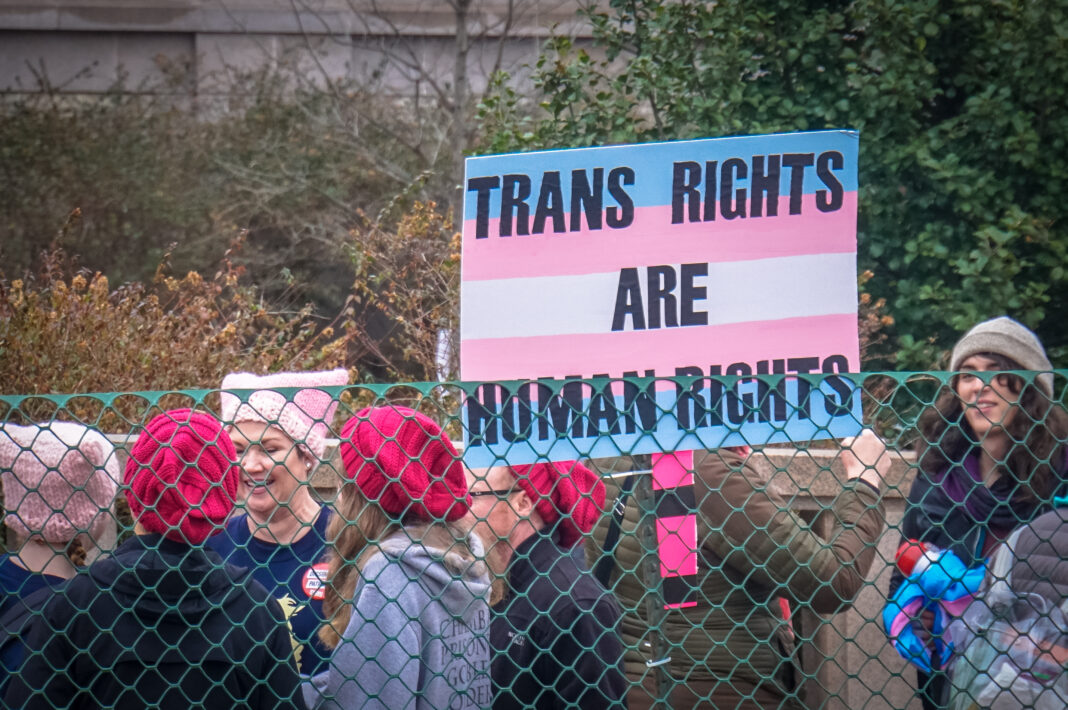I woke up early to write about anti-trans behavior within our community. I wrapped myself in a blanket, and my fingers started typing before I could even wake up enough to think about my schedule or who I would love to grab a meal with today. I don’t need to eat breakfast or drink coffee first; these words live inside my body at any given moment of the day. They are visceral. They are rooted in my muscles and movement. They shape me—reinforce my presentation of self, the way I navigate all spaces at any given time. These experiences create me and hold me constantly.
Everyone always talks about how Muhlenberg is a significantly queer campus. I’ve heard countless jokes and comments about how all of our students are gay, about how artsy and queer the environment is here. I agree with the sentiment in certain scenarios, and this was the case for myself and many of my close friends in relation to our own sexualities. So, what I share next about my thoughts and experiences is not meant to invalidate anyone who agrees with this sentiment, or who has felt safer to explore their identity and share it with the world here than they did in their hometown and other spaces. But have you ever asked a non-cisgender person about their unique experience on this campus?
This school truly is full of incredible queerness—beautiful to witness, magical to explore. But there is an invisible line drawn once you say you are transgender, non-binary, anything outside of what gender you were assigned at birth. I was privileged that none of my peers were aggressively anti-trans or unaccepting. However, to say you support a person is different than to actually do it.
It’s contradictory to celebrate someone’s coming out but constantly misgender them. It’s unfair to bring a pal on friendship dates but call them incorrectly gendered language the entire time. It reinforces our dysphoria and fears when you tell us you see us but that it’s hard to call us what we want to be called. Pronouns aren’t difficult. Names aren’t difficult. Removing uncomfortable language isn’t difficult. Trust is something to be earned, not expected. And we as a student body need to work harder to earn trans students’ trust.
What does that look like? Do actual research rather than asking a trans friend basic information about their identity, prodding at a vulnerable part of them. Don’t make excuses when you make mistakes. Sit with those mistakes no matter how icky they make you feel; your actions impact people around you, so take accountability. Remember pronouns and affirming language, and build them into yourself—not memorization, but a real shifting and rebuilding of your understanding of gender entirely. For us to be able to say that this campus is beautifully queer and fluid, we’re going to have to work incredibly hard to make sure trans students are a significant part of that statement.
I don’t write this to scare non-cisgender students or create fear about living authentically and openly. I support and encourage that wholeheartedly. Doing that myself has saved and shaped me. I do write this, however, to shock and shake some cisgender people, both straight and LGBTQ+ community members, into seeing the harmful reality of these spaces and to work harder. This community is incredible in so many ways and has such potential to be even better. I write this to demand that you all put in the work and make that potential a new, stronger reality for our community.






















